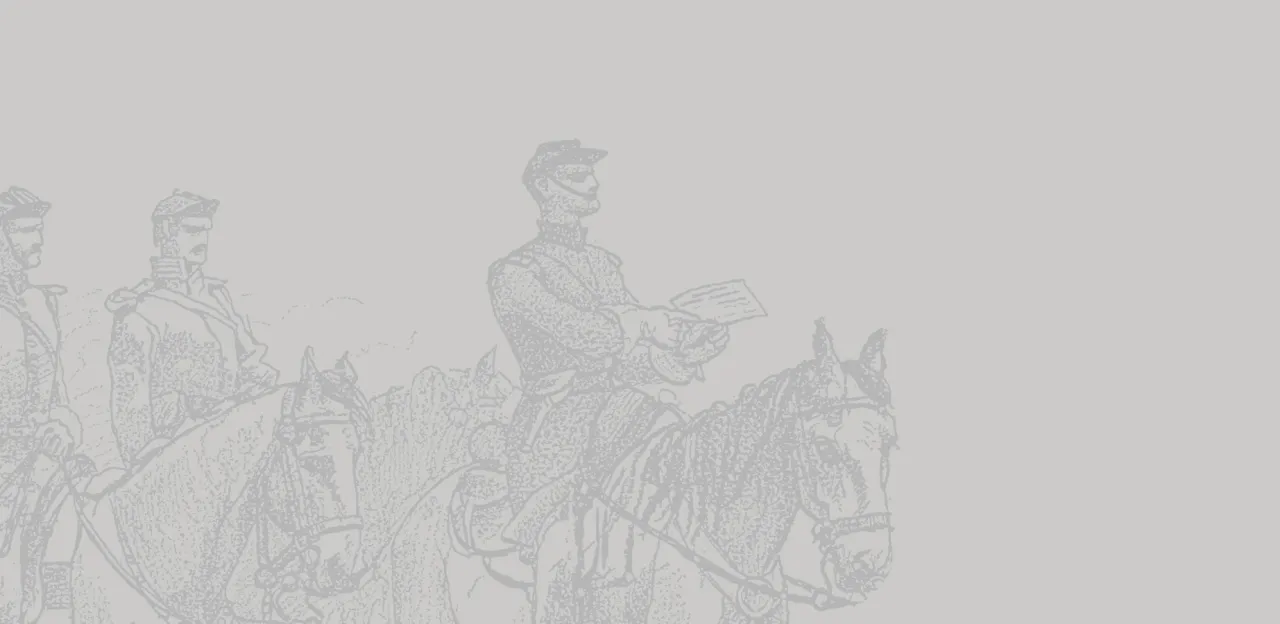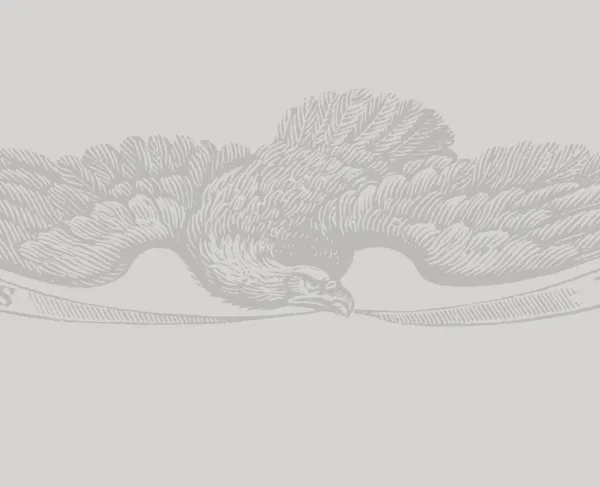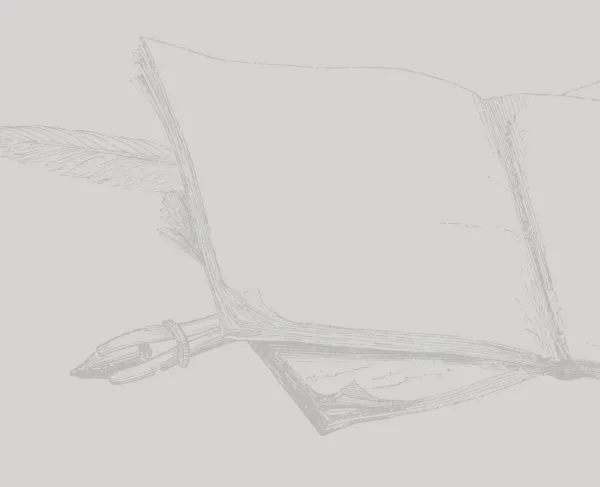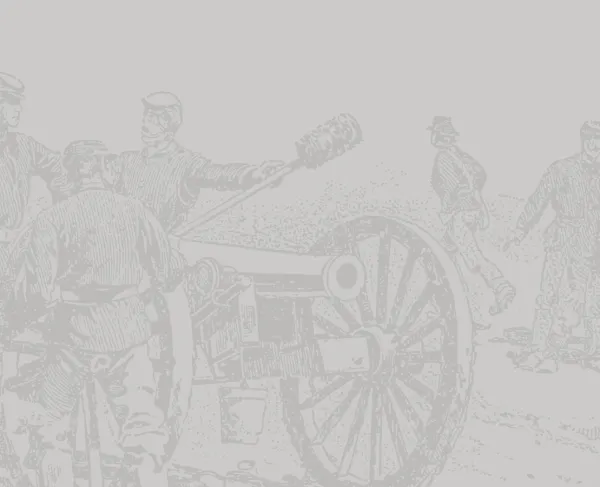Gettysburg: "The Battle Was Too Big For A Little Boy"

Charles M. McCurdy lived in Gettysburg and was ten years old when the Battle of Gettysburg occurred in July 1863. In 1929, he published his memories of the Confederates' raid on June 26 and the battle on July 1-3, 1863. The following are some excerpts from his pamphlet.
At the time of the battle I was ten years old…. The battle was too big for a little boy. Had I realized that the noise and tumult, the confusion and excitement that continued for three days meant that 140,000 men were trying to kill each other—using the deadly machinery of war so effectively that, at the end of the third day, almost one third of those actually engaged were either killed or more or less horribly mangled—my emotion might have been more in keeping with the great tragedy. But my ideas of war were gained from seeing bright young men wearing coveted uniforms and bearing coveted arms, for many Union soldiers had passed through Gettysburg during the preceding years; and from reading Abbott’s Life of Napoleon, and Scott’s Campaigns in Mexico…. These seemed to make war a splendid and glorious adventure….
My wildest dreams of adventure did not include a battle. I had had successful [imaginary] encounters with pirates and Indians, and wild animals, but when I found myself running away from the sound of booming cannon and the sight of bursting shells, as fast as my little legs could carry me, the experience far exceeded anything I had imagined….
[Arrival of Confederates on June 26, 1863]
Certainly these cavalrymen looked as if they needed not only shoes but other proper equipment. Their uniforms of dull, uninteresting gray were worn and shabby, showing signs of long and hard wear. They rode into the public square and dismounted and soon I was hobnobbing with them, finding them very charming and friendly, showing the feeling of protective comradeship that nice young men show to little boys. They asked many questions and sent me on errands for things to eat. I am ashamed to say that I did not return with their commissions, for I could not waste the precious moments of their stay for anything as humdrum as bread and butter….
Of course all the stores were closed at news of the coming of the enemy. Doubtless some of them were opened and goods that cavalrymen could carry away taken…. Across the street from our house a little man named Philip Winter kept a cake and candy shop. He was only about five feet high, so very quiet and unobtrusive, minding only his own small affairs, that the children, who were his chief patrons, called him Petey Winters. Only the very forward ventured to address him in this familiar way for he had a quiet dignity that resented the use of this diminutive. His specialties were molasses taffy, sticks of which homely confection stuck on bits of brown paper, he sold for a penny—and large round formidable looking ginger cakes of great substance and lasting quality, which could be had for the same modest sum. He also had a stock of the plain candies of the day and brewed a mild drink that he called mead. But as this beverage with its accompanying ginger cake cost five cents it was beyond the reach even of the children of the well-to-do. The big copper cent was their currency—the limit of their expenditure. During the summer when ice cream was to be had, we each were given ten cents on Saturday night which we spent for this alluring dish, and which made Saturdays gala days in our lives.
When it definitely was known that the Rebels were coming, Mr. Winter locked his front door, closed his wooden shutters, fastening them with diagonal iron bars, and retired to the privacy of his apartments in the rear of his shop. But the invaders learned that behind these iron bars there was a stock of sweets. Mr. Winter was brought to the front, his door was opened, and soon a perplexed little man was overwhelmed with orders. No penny sales of molasses taffy now. Hilarious boys in gray were giving him a new idea of trading. He was doing the business of his life, handing out candy in exchange for Confederate money. One big trooper came out of the shop with his hat full of candy and seeing an expectant looking small boy gazing enviously at his store gave me a handful….
Yet it does not seem that people realized the possibility of a battle at their doors. No restriction was placed on my goings and comings. I was not warned to keep near home, although this usually was not necessary for a small boy’s range is very limited. Thus, when I heard that a great force of Union Cavalry was coming in by the Emmittsburg Road [on June 30], I ran out to meet them. I remember the cherries were ripening and I had a branch filled with the beautiful red fruit which was more alluring to the eye than to the palate, but which helped satisfy the craving that all small boys have for fruit of any kind…. I sat on the top rail of a fence and watched the long procession ride by, the perfectly accoutered troops offering a strong contrast to the Rebel cavalry I had seen a week before.
After a time I got off my perch and joining the company of small boys found at the tail end of any procession, trudged alongside the company to their camping place, watching with absorbed interest the putting up of their tents, the simple preparations for supper and all the sir and orderly confusion that attends making camp. It does not appear that any one outside military circles knew that a battle was impending for the next morning directly after eating breakfast I went out to Buford’s camp. When I got there the soldiers had gone; save for an occasional one detained by some duty the place was deserted. There was little in the forsaken camp to interest me, and I turned to go back to town where I hoped to find more exciting events….
Until about four o’clock the air was filled with the sounds of battle, then this became intermittent, with only occasional discharges. Suddenly we saw surging up the street a wild and disorganized mob of blue clad soldiers, most of whom had thrown away their guns, many without hats and all seemed intent only on escaping some dread and imminent peril. If there is a more thrilling spectacle than an army in frenzied retreat through the narrow streets of a town, I cannot imagine it.
Soon they had passed and individual Confederate soldiers appeared, but strange to say there was no organized pursuit. These soldiers began searching the houses for Union soldiers whom they thought might be hiding within. A posse stopped before the gate behind which my mother was standing and inquired: “Madam, are there any Yankee soldiers in your cellar?” “No,” she replied, “there are no soldiers in my house.” Two were concealed in my grandmother’s, and she knew it, but it was not her house.
We were now within the Confederate lines, the repulse of the Union force on the first day giving the possession of the town. Aside from the despondency this caused, the change made little difference. The victors were considerate and did not annoy the populace with demands for supplies…. During the night a barricade was thrown across the street near our house. Wagons, boxes and barrels were used in its construction and while it would have served to check charging troops, no assault occurred. It only served as a source of entertainment for small boys who found a new game in climbing over the obstruction….
We went to bed that night weary after a day of excitement and strange adventure, not knowing what to expect on the morrow. For the repulse of the Union forces seemed decisive and we did not know anything beyond what we had seen.
I suspect that my capacity for emotion had become exhausted by the excitement of the battle of the first day, for when the firing was resumed on the second morning with greater intensity, it seemed an old story. Cannon thundered and musketry fire rattled all day. Much of the time we spent in the cellar which I thought an unnecessary precaution. Whenever there was a lull in the cannonading I was on the street, which provided large entertainment. Two doors below our house the College Lutheran Church was filled with wounded, as were all the churches and public buildings. The auditorium of this church was on the second floor and the wounded had to be carried up a long flight of stairs from the street. Surgeons were at work under very rude conditions…. The church yard was strewn with arms and legs that had been amputated and thrown out of the winders, and all around were wounded men for whom no place had yet been found. I remember very little about the events of this day [July 2], for there was the same dreadful monotony of sound and awful sights of suffering. We were not disturbed by soldiers in the house….
By this time I was getting pretty tired of ham. It was the staple dish for we had only makeshift substitutes for bread. But we had apple butter and preserves, and fared well compared with the poor fellows who were being killed and mangled all about us, and whose commissary service during the fighting must have interrupted….
On the morning of the third day [July 3] there was a repetition of the experiences of the two preceding days. Soon after noon, however, the most terrific cannonading that we had heard began. As soon as it slackened we came up from the cellar, and Father took me with him to the third floor of our house from which one could look from a dormer window towards the scene of the firing, a mile or more away. A dense volume of smoke hid everything from view, but we could plainly hear through this screen, the Rebel yell and the answering Union cheer. Weird and inspiring sounds. Soon everything became still, and although we did not know it, the battle had ended with victory for the Union army. At night camp fires twinkled along Seminary Ridge, marking the Confederate line of battle. But only to deceive. Already they had begun their awful retreat to the Potomac….
Soon after the battle, when little had been done to change the appearance of the field, beyond the removal of the wounded and the hasty burial of the dead, I was taken over parts of the Union line, to Culp’s Hill, which showed evidence of terrific fighting. On the crest breastworks protected the Union soldiers, the slope was heavily wooded and many great granite boulders were scattered about. The foliage of the trees for twenty feet above the ground had been shot to pieces, showing how wild and excited the Union fire had been. On every boulder, many splotches of lead showed where a bullet had struck. I saw a long trench filled in with fresh earth, and on a blazed tree nearby, this inscription written with a pencil: “Forty Rebs buried to the right.”….
During the succeeding weeks I roamed over the fields with other boys looking for relics of various kinds, gathering a store of bullets, particularly prizing those that had been fired and had hit a boulder or tree, giving them grotesque shapes; making a collection of shells and other things dear to a boy. In our wanderings we saw many gruesome sights that cannot be described—enough to destroy whatever glamor war may have had for us.
Source:
Gettysburg: A Memoir by Charles M. McCurdy, published in 1929.
We're on the verge of a moment that will define the future of battlefield preservation. With your help, we can save over 1,000 acres of critical Civil...
Related Battles
23,049
28,063


